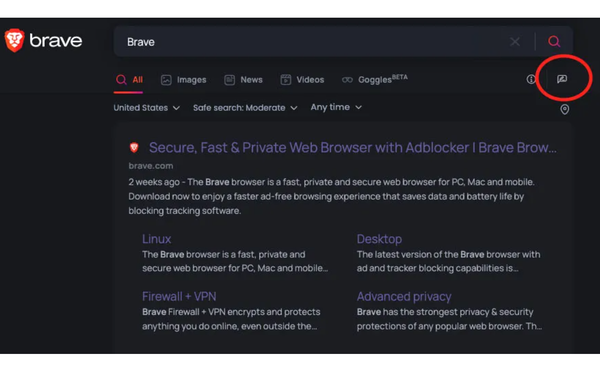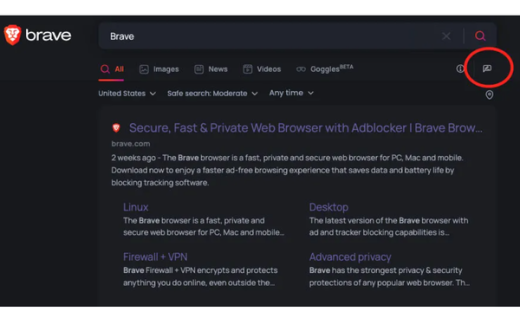Brave Disconnects Microsoft Bing From Its Web Search
Brave Disconnects Microsoft Bing From Its Web Search

Brave, a privacy-focused search engine and browser, said it will no longer use Microsoft search as a source for its web searches.
“Every Web search result seen in Brave Search is now served by our own index,” the company wrote in a blog post. “We’ve removed all search API calls to Bing, which previously represented about 7% of query results.”
Brave Search launched in June 2021. At that time, about 13% of the queries required the help of third parties such as Bing to achieve a certain level of quality across various types of queries.
In less than a year after the launch, the Brave Search global independence score rose from 87% to 93%. Brave had always set a goal to become independent.
Brave Search is now averaging about 22 million queries per day, the company estimates — making it the fastest-growing search engine since Bing. But Brave has a long way to go to achieve Bing’s growth status, especially since it integrated OpenAI’s Chat-GPT4.
Bing reached 100 million daily active users just weeks after launching the chat feature. Compare that to Google’s more than 1 billion million actively daily users.
Since consumer privacy remains a major consideration, Brave took other factors into account, such as the uncertainty over the future of the Bing API, which grew after the Microsoft and OpenAI partnership.
Microsoft also announced an “unprecedented increase in its API pricing, which created undue pressure for search engines that rely to an extent on the Bing Search API.
The switch took time, but seemed intuitive. Brave has an independent index — and the Brave Browser, a built-in delivery mechanism, to continue improving the Brave Search index.
Brave Search users by default will now receive 100% of results from the Brave Index. The company promises that this independence does not come at the expense of quality.
During the past several months, the Search team has drastically improved Brave Search’s ability to answer nuanced, long-tail queries.
As an option, the company said, Google results will be available through what the company calls “Google fallback mixing.”
The company does acknowledge that the removal of all Bing API calls may have an effect for certain queries, or for some regional or language-specific results, so it is asking for feedback during the transition.
(7)


